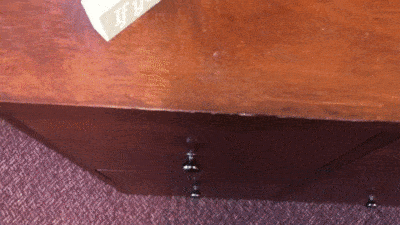
On Dec. 12, I moderated a live Twitter chat with Ishmail Abdus-Saboor and Samira Musah, fellows of the Postdoctoral Enrichment Program (PDEP). Abdus-Saboor is now the Mitchell J. and Margo K. Blutt Presidential Assistant Professor of Biology at the University of Pennsylvania, and Musah is Assistant Professor of Biomedical Engineering at Duke University. Their three-year, $60,000 PDEP award was granted by the Burroughs Wellcome Fund.
The grant is awarded to underrepresented minority postdoctoral fellows working to advance to careers in medical or biomedical research — and applications are now open until January 16. For more information on the PDEP grant and to see the perspectives of awardees Abdus-Saboor and Musah, see a recap of highlights of the #bwfPDEP chat below:
HELLO! Welcome to the #bwfPDEP chat where I hope you’ll be able to learn more about the @BWFUND Postdoctoral Enrichment Program (PDEP) grant award! Use #bwfPDEP to chime in and follow along with the conversation. Like this post to let me know you’re here! pic.twitter.com/T13QynGpv8
— Yasmin Bendaas (@yasminbendaas) December 13, 2018
Thanks for joining everyone! To start off, I have 6 Qs for @thesamiramusah and @IshmailSaboor who are both prior @BWFUND PDEP awardees. Then, we’ll leave the floor open to your #bwfPDEP questions! pic.twitter.com/3Mx8I4WA2W
— Yasmin Bendaas (@yasminbendaas) December 13, 2018
Q1: @thesamiramusah and @IshmailSaboor — Tell us about yourselves! Where are you currently and a little about your research? To our #bwfPDEP followers, their responses to my questions will be on each Q’s thread! pic.twitter.com/G0xZpHFott
— Yasmin Bendaas (@yasminbendaas) December 13, 2018
Good evening everyone. I’m currently the Mitchell and Margo Blutt Presidential Assistant Professor of Biology at UPenn. My lab is interested in sensory encoding of somatosensation using integrated approaches in the mouse spanning molecular biology and animal behavior. #bwfPDEP
— Ishmail Abdus-Saboor (@IshmailSaboor) December 13, 2018
A1: Hello! I finished my postdoc at Harvard and will start faculty position at Duke Univ in 1/2019 in Biomedical Engineering and Medicine. My research focuses on applying stem cell technology to study and develop therapeutic modalities for human kidney disease. #bwfPDEP
— Samira Musah (@thesamiramusah) December 13, 2018
Q2: @thesamiramusah and @IshmailSaboor — What years were you awarded the PDEP grant award and how did it support your becoming an independent researcher? Any thoughts on the networking opportunity with other #bwfPDEP awardees? pic.twitter.com/tDLyuSjROI
— Yasmin Bendaas (@yasminbendaas) December 13, 2018
A2: I’m a 2015 awardee. PDEP grant allowed me to seek innovative research, career development, and leadership training opportunities. The supportive network of BWF awardees/staff has been most helpful. I learn from them and seek great input on aspects of academic career. #bwfPDEP
— Samira Musah (@thesamiramusah) December 13, 2018
I was awarded the grant from 15’-18’. I was able to take some research gambles like purchasing a high-speed camera with the PDEP funding that paid major dividends, as this approach now drives one of the research approaches in my lab. #BWFPDEP. 1/2
— Ishmail Abdus-Saboor (@IshmailSaboor) December 13, 2018
This grant also provided me with the support of BWF and I have met awardees of other BWF grant mechanisms who are now friends like @BrodskyIgor and @schneiderneuro. Plus my fellow PDEP awardees are such a great network of talented URM scientists to engage with. #BWFPDEP. 2/2
— Ishmail Abdus-Saboor (@IshmailSaboor) December 13, 2018
Q3: @thesamiramusah and @IshmailSaboor — Can you provide examples of enrichment experiences or activities supported by the #bwfPDEP award that positioned you to become more competitive for other grant awards and opportunities? pic.twitter.com/dUYNdH2c43
— Yasmin Bendaas (@yasminbendaas) December 13, 2018
2 years after receiving the PDEP I was awarded a K99/R00 from the NIH. It takes money to make money as they say. The PDEP funding supported the work in my preliminary data and it showed NIH that other funding agencies thought I was someone worth investing in. #BWFPDEP
— Ishmail Abdus-Saboor (@IshmailSaboor) December 13, 2018
A3: Exploring new/innovative research projects, attending national and international conferences, and completing leadership training courses. I received several invitations to give research seminars, as well as job interviews through my PDEP funded activities #bwfPDEP
— Samira Musah (@thesamiramusah) December 13, 2018
A3: As a postdoc in the sciences, I was able to take a leadership training course at Harvard Business School, which would not have been possible. As a new PI, I find that this additional training is critical to develop and lead a robust research team. #bwfPDEP
— Samira Musah (@thesamiramusah) December 13, 2018
Thats a great idea! Us junior faculty in the Biology dpt today at lunch were talking about the usefulness of taking a management course in a business school to help in running our labs.
— Ishmail Abdus-Saboor (@IshmailSaboor) December 13, 2018
Q4: @thesamiramusah and @IshmailSaboor — What has been your greatest highlight or experience as a result of the @BWFUND PDEP award? #bwfPDEP pic.twitter.com/9fB0sYvDpZ
— Yasmin Bendaas (@yasminbendaas) December 13, 2018
One highlight is meeting at BWF headquarters with other awardees. Us URM postdocs typically reside at universities where we constitute a slim minority. But at the meetings we all come together and let our hair down and socialize, talk shop, and invigorate one another. #BWFPDEP
— Ishmail Abdus-Saboor (@IshmailSaboor) December 13, 2018
A4: The intellectual freedom provided by the award, and the professional network with BWF community are major highlights for me. #bwfPDEP
— Samira Musah (@thesamiramusah) December 13, 2018
Q5: @thesamiramusah and @IshmailSaboor — Can you tell us about your experience in preparing the @BWFUND PDEP application and any advice or guidance you would offer to prospective #bwfPDEP applicants? pic.twitter.com/danIyfIP3D
— Yasmin Bendaas (@yasminbendaas) December 13, 2018
Start early, as with any grant. I like to give myself 3-6 months to write a strong application. Reach out to past awardees and ask to see examples of successful proposals. @Landry_Lab who is currently running a lab at Berkeley helped me extensively with my proposal. #BWFPDEP
— Ishmail Abdus-Saboor (@IshmailSaboor) December 13, 2018
A5: Reach out to your grant management team as soon as possible and keep in mind that the internal (university) deadline will be at least a few days earlier than the BWF deadline. Mentorship component is key so work with your PI/mentor on that. #bwfPDEP
— Samira Musah (@thesamiramusah) December 13, 2018
A5: Think of the budget and justification as the wish list to get you closer to your career goals. #bwfPDEP
— Samira Musah (@thesamiramusah) December 13, 2018
Q6: @thesamiramusah and @IshmailSaboor — A significant element of the #bwfBDEP award consists of successful mentoring. What insight do you have to offer regarding the mentoring/mentee relationship supported by the PDEP award? pic.twitter.com/hNmVF0xWHr
— Yasmin Bendaas (@yasminbendaas) December 13, 2018
Mentorship in science is paramount to success. Ben Barres has written eloquently on the importance of finding good mentors. And I have recently written a piece on mentorship, edited by two PIs at Penn, that can be downloaded at my website (https://t.co/ILkGVd1ZJY). #BWFPDEP
— Ishmail Abdus-Saboor (@IshmailSaboor) December 13, 2018
A6: For me, the award provided a foundation to discuss with my PI concrete career development activities that I could pursue. Having funds available to support these activities made a difference. #bwfPDEP
— Samira Musah (@thesamiramusah) December 13, 2018
I’ve also discussed the impact of mentoring on my professional development and career path. Details here https://t.co/S4sEdNcWJg
— Samira Musah (@thesamiramusah) December 13, 2018
Q7: Alright! It’s OPEN Q time! If you have any other questions about the PDEP grant for @thesamiramusah and @IshmailSaboor – reply directly onto this thread with “A7” followed by your question to be part of the conversation! And don’t forget to use #bwfPDEP :) pic.twitter.com/Xwsw6TLTc0
— Yasmin Bendaas (@yasminbendaas) December 13, 2018
A7
1) the science content of the project plan is tight, given that, what’s the most efficient manner to get ideas across without going into unnecessary detail?
2) does the budget need to be the full $20k
3) what are major themes that reviewers are looking for?— Ayed Allawzi (@ayed_allawzi) December 13, 2018
A7: 1) You have to convince people of the importance of your problem, why you are the one to solve it, and how you plan to solve it. 2) 20K/yr for 3 years can be spent very easily – go for it all. 3) You can look at the past awardee project titles to get an idea. #bwfPDEP
— Ishmail Abdus-Saboor (@IshmailSaboor) December 13, 2018
A7: Overall, how did you make your application (personal statement, proposed research, etc.) stand out from the other applicants? #bwfpdep
— Brittany Taylor (@BLT_BME) December 13, 2018
A7: If you look across BWF, they like to fund very provocative ideas, so don’t be afraid to be scientifically bold (within reason). Much more so than you would be for a standard NIH grant. 2/2
— Ishmail Abdus-Saboor (@IshmailSaboor) December 13, 2018
A7
Great info on the thread. I am wondering how soon into or before the post doc should I prepare my PDEP application❓ #bwfPDEP
Appreciate the insight‼️
— Nick Sapp (@SappExperiment) December 13, 2018
Thank you for the interest! To be eligible, you must be in a funded postdoc position and not have more than 36 months as a postdoc at the time of application submission. #BWFPDEP
— Alfred M. Mays (@amays_bwfund) December 13, 2018
Thanks for this info session, really cool way of getting info out quickly and in a transparent fashion #bwfPDEP A7 Is there a historic preference or leaning towards mechanistic or clinical/translational areas of research? Have you all funded methodological or development studies?
— Stefan Madansingh (@mrstef) December 13, 2018
Great question! No particular leaning towards specific areas. Regardless of area, the primary interest is on to the extent the research supports career progression and ultimately becoming an independent researcher.
— Alfred M. Mays (@amays_bwfund) December 13, 2018
As the #bwfPDEP chat winds down, I wanted to remind everyone that you can find details of the @BWFUND PDEP award and the 2019 application cycle at https://t.co/K5SXNRDI0S pic.twitter.com/pr1OCoQKz6
— Yasmin Bendaas (@yasminbendaas) December 13, 2018
Great session and wonderful exchanges! If you have administrative and programmatic questions, feel free to tag my handle or send an email to amays@bwfund.org
I will also monitor all feeds as we progress toward the application deadline. #BWFPDEP— Alfred M. Mays (@amays_bwfund) December 13, 2018
Thanks so much to you all for joining us tonight for the #bwfPDEP chat! It warms my heart to see this much potential for #diversityinscience. If you’re interested in this @BWFUND grant, stay tuned to #bwfPDEP and @amays_bwfund. It’s been fun everyone! pic.twitter.com/vGsB6855hT
— Yasmin Bendaas (@yasminbendaas) December 13, 2018


